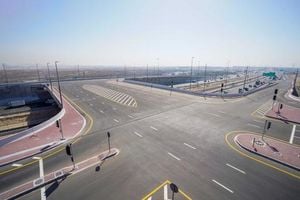Pablo Sánchez, the lead singer of the Valencian band La Raíz, announced unexpectedly on February 14, 2025, his inability to participate in the group's much-anticipated reunion tour due to his diagnosis of multiple myeloma, a serious type of cancer impacting the blood and immune system.
"I have been diagnosed with a serious, chronic illness," Sánchez stated candidly, highlighting the sudden turn of events for both himself and his bandmates. With the tour set to kick off next month, the announcement has struck hard for the group and its fans, who were eager for La Raíz's return after their hiatus since 2018.
La Raíz made headlines last year when it announced its reunion—celebrated with two concerts at Madrid's Wizink Center. The 2025 tour was poised to cover several cities, promising a busy season for the band and exciting performances for fans. Their first gig was scheduled for March 7 and 8, 2025, with subsequent shows lined up throughout Spain.
Although there was anticipation for the upcoming concerts, Sánchez shared his struggles over the past few months with back pain, which initially led him to seek physiotherapy. "A couple of months ago, I was getting treatment for back pain, which seemed manageable. But then, after experiencing intense pain following a strong sneeze—a diagnosis nobody could have predicted—doctors performed more examinations. It turned out I had fractured a vertebra," he detailed.
The situation took an even grimmer turn after medical checks revealed he had multiple myeloma. This type of cancer arises when plasma cells, which are supposed to produce antibodies, grow abnormally and crowd out healthy blood cells. Sánchez described feeling shocked by the diagnosis, stating, "I never thought I would find myself sharing something like this." This sentiment resonates with fans who have supported the band through its musical evolution.
Despite the troubling news, Sánchez insisted La Raíz should continue its tour as planned. "The band consists of eleven people; they said they would do whatever I wanted. I told them to continue because this is their reunion as much as it is mine, and I don’t know when I will be able to perform again," he communicated through social media. The band echoed his sentiments, expressing, "It's not going to be easy doing this without the person who has led us here, but he has asked us to persist, and we will try with all our strength. For La Raíz, for the music."
The emotional message and the unity demonstrated by both Sánchez and the band have left fans thinking about the gravity of his situation. "Knowing what I am dealing with during this time, everything else becomes secondary. The only thing I care about is my health, being with my family, and focusing on recovery," Sánchez emphasized.
Sánchez shared his hopes of attending some of the concerts from the audience as he undertakes treatment and recuperation. "I wish to stop by some shows and listen to my own songs, as they will give me strength. I'll be cheering La Raíz on from the distance, enjoying it as another spectator," he remarked. His dedication to the band is evident as he wishes them success and assures fans of his commitment to recovery.
The band's statement reinforces their commitment to support Sánchez through this period. They insisted, "We will proceed with our planned concerts, honoring Pablo’s wishes. We need you all with us. Let's keep pushing forward—together, for La Raíz and for Pablo."
The arrival of multiple myeloma could often fly under the radar with symptoms like persistent pain or fatigue not central to the common health narrative. For many patients, like Sánchez, significant health checks often reveal the complication only after unforeseen events, like his sneeze-induced back injury. The early stages of multiple myeloma can sometimes cause little to no apparent symptoms, making regular health check-ups imperative. For Sánchez, the additional tests following his vertebra concerns introduced him to the stark reality of his health crisis.
Fortunately, multiple myeloma has varying progression rates and treatment options. Depending on the severity and when it’s detected, some individuals experience slow development, for which physicians may recommend careful monitoring instead of immediate aggressive methods. Nevertheless, established treatment protocols include chemotherapy, immunotherapy, and potentially stem cell transplants, reflecting the multifaceted approach required to manage the illness.
Fans of La Raíz have rallied around Sánchez, promising to back the group through the tour, demonstrating the powerful connection forged through music and shared experiences. Just as Sánchez injected inspiration through his performances, his resilience and candid handling of his health challenge serve as reminders of the human spirit's capacity to face adversity with courage.
While this reunion tour will come without its charismatic leader, Sánchez's unwavering dedication to both his health and the band remains clear. He resolved to focus on recovery, assuring listeners, "Everything will pass, and we will see each other again." With hope and solidarity, La Raíz is set to march on, bridged by the shared love of music and the undeniable bond within the band and their fans.



